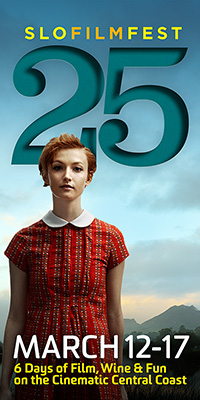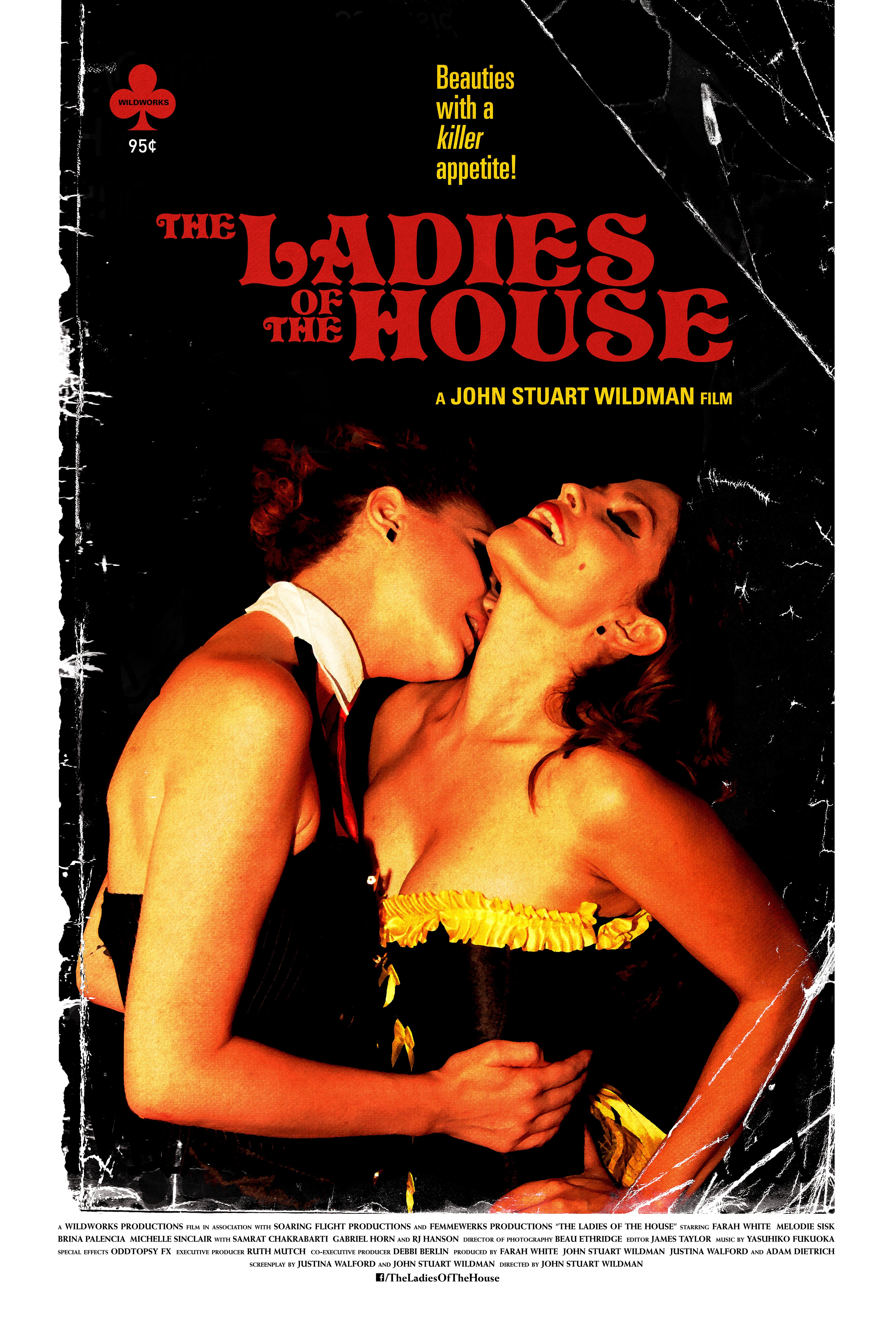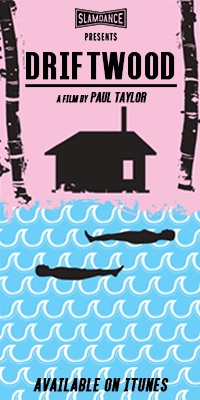At the Toronto Film festival, I had the opportunity to meet and talk with Alice Lowe (SIGHTSEERS) about her new film, PREVENGE, which she wrote, directed, and starred in – while she was pregnant. So there were two productions going on at the same time. The film, a dark comedy with a gleeful grindhouse edge to it, is about a pregnant woman who is convinced that her soon-to-be-born baby is ordering her to kill people, is due in theaters in February.
Before we begin, I have to let you know that, while I have interviewed a lot of people here, this is the first time I called my wife excited about my interview subject. We are huge fans of SIGHTSEERS, so I have been looking forward to this.
Oh, really?! That’s amazing!
Yeah, in fact, she tried to convince me, at some point during the interview, unprompted to just start saying, “Mum. Mum. Mum. Mum. Mum. Mum.”
(Alice starts laughing.)
Yeah, just see what you would do and I told her that if I didn’t think that would make it the last interview I did for awhile, I would’ve done it.
I’m game for that sort of thing. I love that sort of thing! And hearing something like that always satisfies me, because Ben (Wheatley) nearly didn’t put that in. He wanted to take it out of the script. And it was one of the oldest parts of the script that we had, which was just that repetition of the “Mum. Mum. Mum.” And it’s the sort of thing that unless you’re a performer, you just don’t know if it’s going to work. Because you could read that in the script and go, “What?! She says mum 40 times?!” But me and Steve (Oram) really wanted to try and make this work.
It’s called an insistence gag. It actually has a name, and I learned that from a comedy director I worked with. He was a clowning director and it’s this thing that if you do something enough times, it goes through these different phases – you laugh at first, then it starts to become annoying, then it starts to become sort of scary because people think that you’re not going to have it end – ever, and then it REALLY becomes funny. But you have to keep it going that long because if you stop too soon then…if you’re going to do it, you’ve got to do it all the way.
I love starting this way, because my wife and I write together and there are times that there will be things we put in our scripts and friends of ours that like what we do still say, “I don’t get that.” And we’ll say, “You have to trust us on that one.” I am glad you brought that up because I was thinking about how you strike that balance between the funny and horror. More often than not the funny comes after the horror and it’s a tension relief, but in your case both with this film (PREVENGE) and SIGHTSEERS, the comedy sort of takes the front seat, with the horror taking the back seat. Therefore, instead of being unwilling to violate the audience’s ability to be scared half to death, you don’t want to hurt their mindset of enjoying the comedy.
I like the way you put that, I haven’t really thought of it in those terms, but I suppose one of the things we said about SIGHTSEERS was that the killing was just sort of their hobby in a weird sort of way. In theory, you could switch the killings out with playing golf or catching fish or something like that and it would still – in theory – work as a story. The violence really is a backdrop, in a way, for those characters, a metaphor for the violence the characters are doing to each other emotionally. And I think that’s true for Ruth (in PREVENGE), as well. What’s important is her character and her human motivations and the murders are kind of a metaphor, a cinema trope that kind of tips it into more of a genre film or something cinematic, I suppose.
But what you were saying about performance, I think sometimes when people ask me about being an actress and a director, its his touchy thing like only I know how to explain or do this and it’s easier to do it by showing as opposed to telling. I do think that’s true when you are doing tonal shifts. It’s something that really is about the execution and what I was trying to achieve with the film was this sense that you felt you were in unknown territory you hadn’t been in before. There was an element of that in SIGHTSEERS and even more so in PREVENGE because its such an uncomfortable place to see a pregnant woman acting in that way. I wanted it to feel completely new so every time you begin to feel comfortable I’m taking the rug from under your feet and going somewhere else with it.
In a general sense, you know yourself as a performer, with all of the TV stuff that you’ve done, and stage as well, you know what you can do or “sell,” so as you write – for yourself, as opposed to just anyone – that has to be a benefit. It’s like having something in your back pocket, yes?
Definitely. I mean, I have unconsciously written for myself because that’s something that is inherent in me. You get into the zone of that character so you’re not analyzing the character, you’re just in it. I thin I was in the zone for the whole film, really. Which is nice. It’s the state that you hope you can get into – not standing outside of the project, you’re inside it – not analyzing it to much. You give that script to another person and they might go, “I don’t get it. I don’t get it. I don’t get this character.” I always have a feeling of security that I can “sell” this character.
But not “sell” it in a commercial way. I remember talking to Ben and he was worried, saying is this character (in SIGHTSEERS) too stupid or silly or immature. Are people going to like her? And I said, “If you’re worried about that…” and I had to kind of bullshit a little bit, because I don’t know if I really believed it myself…”Don’t worry about that. You’ve got the right actress.”
You have talked about this in a previous interview, about him feeling the character was too unlikable and advising you regarding that. Again, that is balance as well, is it not? How significant is it to be “likable”?
I said this about PREVENGE that it’s almost a reverse arc, because it’s almost like an unsympathetic character that you get to like. I’m challenging you to think that she’s actually cruel and unkind. So, you think she’s totally evil and then by the end, you start to sympathize and understand her. Usually, you start off really liking someone and then they make some questionable choices, but we’ve already liked them by that stage.
I also, as an actress, come up against this likeability thing. It’s always a bigger concern for women than for male characters. “Oh, she’s not likable!” So, what? If she is interesting then we’ll want to watch her. I always think of Travis Bickel (from TAXI DRIVER) as an example. Do we approve of the decisions that Travis Bickle makes? Would we do the same things? Is he insane? Yes. Are we interested in that film? Yes. Is he a psychotic character? Yes. But do we watch it and say, “It’s so terrible what they are saying about taxi drivers!”? Which is what they do with women. Questionable choices or immoral choices. And then people say, “Well, isn’t that an awful indictment on women?” As if it has to be representative of all women. But, of course likeability (on some levels) is important – but it’s all in execution. The performance is what makes people like that character. You hope that the performance makes people feel that they ARE that person, making those choices – even if it has nothing to do with what they would normally do. But that’s the challenge, really. Its getting them engaged so that they are rooting for that character, saying, “Oh, I hope she kills that man, Wait, what am I thinking?”
One of the things I love about PREVENGE is that each of the victims – I think you successfully toy with the audience as to our expectations of what a victim that we need to get revenge against are. Both in the case of one man, who reveals himself to just be a gross, slimy character, to a businesswoman, where we begin seeing her as a cold, heartless person before you soften her prior to killing her. I think it’d done very, but how much of that were you stressing in both the writing and directing?
To start with, there were practical concerns. There was very little time to film, very little money, so one of the ways I structured the script was as a series of “two-handers,” so you get an actor for a day and then by the end of that day, you’ve got a ten-minute long-form scene which is going to represent a large chunk of the film. So, each of those scenes is like a little playlet, a little peace of theater.
To an extent, you don’t want the audience to automatically think that person is awful, I wanted the whole film to be very human. Everybody’s got their flaws. One of the central premises of the film is why are we so nice to babies? Everyone was once a baby. Why don’t we treat all human beings with the kindness we reserve for small children or pregnant women?
I also wanted there to be the idea that the main character might not want to do these killings, maybe there’s a bit of conflict there. Maybe she thinks she really needs to know that they ARE awful which is why she draws it out so long. So she’s really having to sort of test them until the baby says, “See? See? We’ve seen enough! Let’s get down to it!” Because to her, she’s good. She’s a good person and these people are evil and didn’t get their punishment, so now she’s going to do that.
So, you take that kind of classic narrative and then I put my twisted British spin on it so it’s like these little comedy of manners where she might not be upset by something truly awful, but she just got annoyed by what some guy might have said to his mom. Those are the things I enjoy doing so I worked with actors that all had really good improvisational skills and it was just about playing with them.
And each of them is a warm performer even though it is a cold film. And that is something I probably learned from someone like Ben Wheatley, that he always casts against type in a way. So, you might have a narrative that is cold and hard, but the actors are so warm that you identify with them. So everyone I chose was a warm performer so that you would warm to them even when they are being horrible.
Speaking of the short film schedule, how much did you “reverse engineer” the project to fit the story, etc. to the budget you had? How much does that play into the idea you initially came up with and then to the granular details of the script – thinking, “We can’t do this. We can’t afford it.”?
I think my problem is that I don’t know how to work with a budget. I’m so used to doing things on the fly with no money that I’m writing, already thinking about, “How do we limit locations?” “How do we limit this and that?” So, in a way that comes second nature to me. And I am an impatient, pragmatic person as well. I like it to be economical and fast, saying, “Let’s get on with it.” “Let’s not dither around. I know how I want to shoot this. I know how I want to edit it as well.” So, a lot of that stuff is just kind of what I do.
The effects were pretty much in camera. We did some visual effects but it was really just cleaning up the mistakes that we made. I enjoy the in-camera stuff anyway. I think it’s more effective. I like the 70s style, guerrilla filmmaking and I wanted it to be rough around the edges, raw, and vibrant.
There’s almost a grindhouse feel to it..
Yeah. Even the title is almost pulpy in a way. I wanted to do all of that stuff. But there was never going to be like an explosion or something like that (budget-wise). And I always have a plan B. I enjoy that and have fun with that because then my brain is stretched to come up with an even more unexpected creative choice. I also work with a guy who is one of the foremost practical EFX guys in the UK. He worked with Ben on SIGHTSEERS and I met with him and asked, “What do you already have in your workshop?” He said, “I’ve got a couple of testicles.” And I say, “That’s useful.”
But when you’re used to being very hands on in all areas because you have no money, then that is the way you think because you know you can make it work if you want. That is how you can prove to a production company that it’s possible when they say it is impossible because you can say, “I’ve got a guy…with testicles”.
But you have had films that screened at Cannes, etc. TV and other projects that did very well. It isn’t as if you made one short film and tucked it away in the back of a drawer in some cabinet.
Yes, and people are just discovering some of it now. But It doesn’t come out of nowhere. It comes out of all of your experience and your contacts. When I say I wrote this and, shot this in 11 days, etc.,, I’m also saying and I’ve been doing this for years. I feel like a superhero and hat I’ve trained all this time to bring me to this point. I just felt ready to do it, to be honest. I felt I had all of those resources at my fingertips.
The last question I had for you was this: As someone that trades in comedy, you always have an idea of “my jokes” versus their jokes. So if they laugh at certain things, then you say to yourself, “They’re with me. My people are in the audience.” Do you do that?
Definitely. I think there are things that come out that you and the editor want I, but you don’t know why. There are certain lines that are not “laugh out loud,” but for me it’s like a performance thing. But last night I was surprised at some things that were getting laughs.
That’s right. It was the first English-speaking audience to see the film, right?
Right. I was thinking if we get this wrong, this is the nice audience. But I was a little nervous and relieved when we did get laughs and yet, I’m still thinking, “We could’ve cut that earlier because the laugh came before.” And as a live performer, your desire is to change it, but you can’t change it! For me, that will be the thing that will always be difficult to deal with.









READER COMMENTS